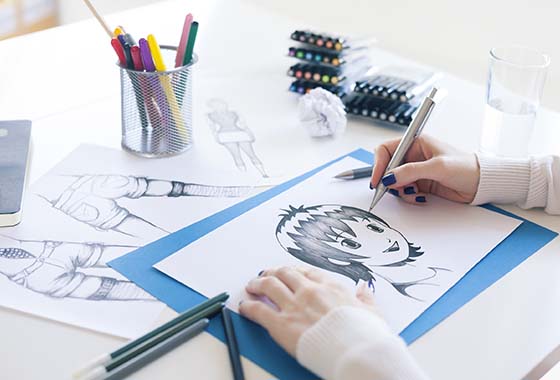As arts institutions embrace technology in a Covid-19 world, where is Hong Kong’s vision?
This article appeared originally in the South China Morning Post on 28 June, 2020.
Author: Helen So, researcher for arts innovation at Our Hong Kong Foundation

The smorgasbord of virtual arts and cultural offerings has helped keep people sane during this time of Covid-19 social distancing. Indeed, over the past six months, the spotlight has turned to “tech-savvy” arts institutions and universally accessible digital resources.
Notably, the J. Paul Getty Museum has developed an “art generator tool” allowing any image from its open-access collection to be imported into Animal Crossing: New Horizons , Nintendo’s new community-building video game that became the first console game to reach 5 million digital sales within a month.
Social distancing has made these “new” and digitised modes of interaction and engagement commonplace, challenging the limitations of time and place. This space where the arts meets technology has been identified in many parts of the world, and certainly deserves more attention from cultural policymakers.
This is especially so in Hong Kong, which lacks a long-term vision or ambition for arts tech, leaving us trailing others which are already reaping the benefits of such policies.
Noting the discrepancy, Our Hong Kong Foundation’s latest arts innovation research report on optimising arts tech development is the first of its kind in Hong Kong, with recommendations derived from policy trends observed worldwide.
Back in 2018, before the pandemic struck, the British government launched the Culture Is Digital blueprint, its first report calling on the cultural and technology sectors to work together. The blueprint includes £33 million (US$41 million) in funding dedicated to encouraging the creative and tech sectors to jointly submit proposals to develop new technologies to improve visitor experiences.
Famously, the Royal Shakespeare Company was granted £3.9 million to carry out its project – an ambitious submission with 15 other specialist organisations spanning theatre, music, video production, gaming and research – on immersive performance possibilities.
Arts tech has also made it into high-level cultural policies in South Korea, Taiwan and Singapore. The Korea Creative Content Agency, a product of a 2001 blueprint, is a dedicated arts tech incubator with funding capability to support South Korea’s ecosystem of culture and technology, covering its research and development, industry application, intellectual property creation and exports.
Taiwan’s commitment to arts tech development is also clear. Its culture ministry helped to launch Taiwan Contemporary Culture Lab (C-LAB) in 2018 as a dedicated physical base and matchmaking platform for cultural professionals, technologists and their crossover experiments. The Taiwan Creative Content Agency, with similar aims to the Korea Creative Content Agency, was successfully launched last June.
In Singapore, as part of measures to help the industry through the pandemic, the government initiated a Digitalisation Fund for the arts and cultural sector to help make museums’ exhibitions and collections accessible on virtual platforms, which resonates with the National Arts Council’s four-year Our SG Arts Plan.
In Hong Kong, no comparable blueprint or vision for arts tech is in place. However committed the institutions within the sector are, these cannot be sustained without a clear direction.
Hong Kong should seize the opportunity to craft a policy blueprint for digital culture, especially given the growing interest worldwide, and enable greater private-sector support to fuel the movement.
Our Hong Kong Foundation’s latest report, ‘Innovating Creative Cultures – Arts Tech’, outlines recommendations in more depth. It proposes that the government set up unprecedented funding with cross-bureau involvement dedicated to supporting crossover between the arts and technology sectors, and recommends that existing funding schemes open their doors to more applications from creative projects.
Noting the lack of venues for research and experimentation, the report recommends that the government strengthens research infrastructure, such as in the schools of creative media in City University and Baptist University, and adds spaces for experimenting in the West Kowloon Cultural District, public museums and other art venues.
To address the information gap between Hong Kong’s creative and technology circles, the government should look to Britain’s example in allocating funds to set up a digital culture platform, run by an intermediary, with close partnerships with universities, research centres and the industry.
As the world continues to change, the need for arts innovation becomes more pressing, and the imminence of arts tech ever clearer. Hong Kong needs a plan to boost its cultural and creative assets. The pandemic has shown that arts tech is inevitable, and therefore essential, whether we like it or not.



